Born in Lewiston, Maine in 1943, Ron Bancroft attended the Naval Academy before going to Oxford to read for a second undergraduate degree in PPE (Philosophy, Politics and Economics). After eight years serving in the US Navy, Bancroft worked at McKinsey and Bath Iron Works before setting up his own strategic consulting firm, Bancroft & Company. For several years he also wrote a weekly column on politics and education for the Portland Press Herald. Now retired, he has served on the boards of educational non profits with a focus on Maine, including Educate Maine and the Great Schools Partnership. He has also Chaired the Trustees of Maine Public, the PBS and NPR affiliate in Maine. This narrative is excerpted from an interview with the Rhodes Trust on 24 April, 2024.
Ron Bancroft
Maine & Oriel 1965
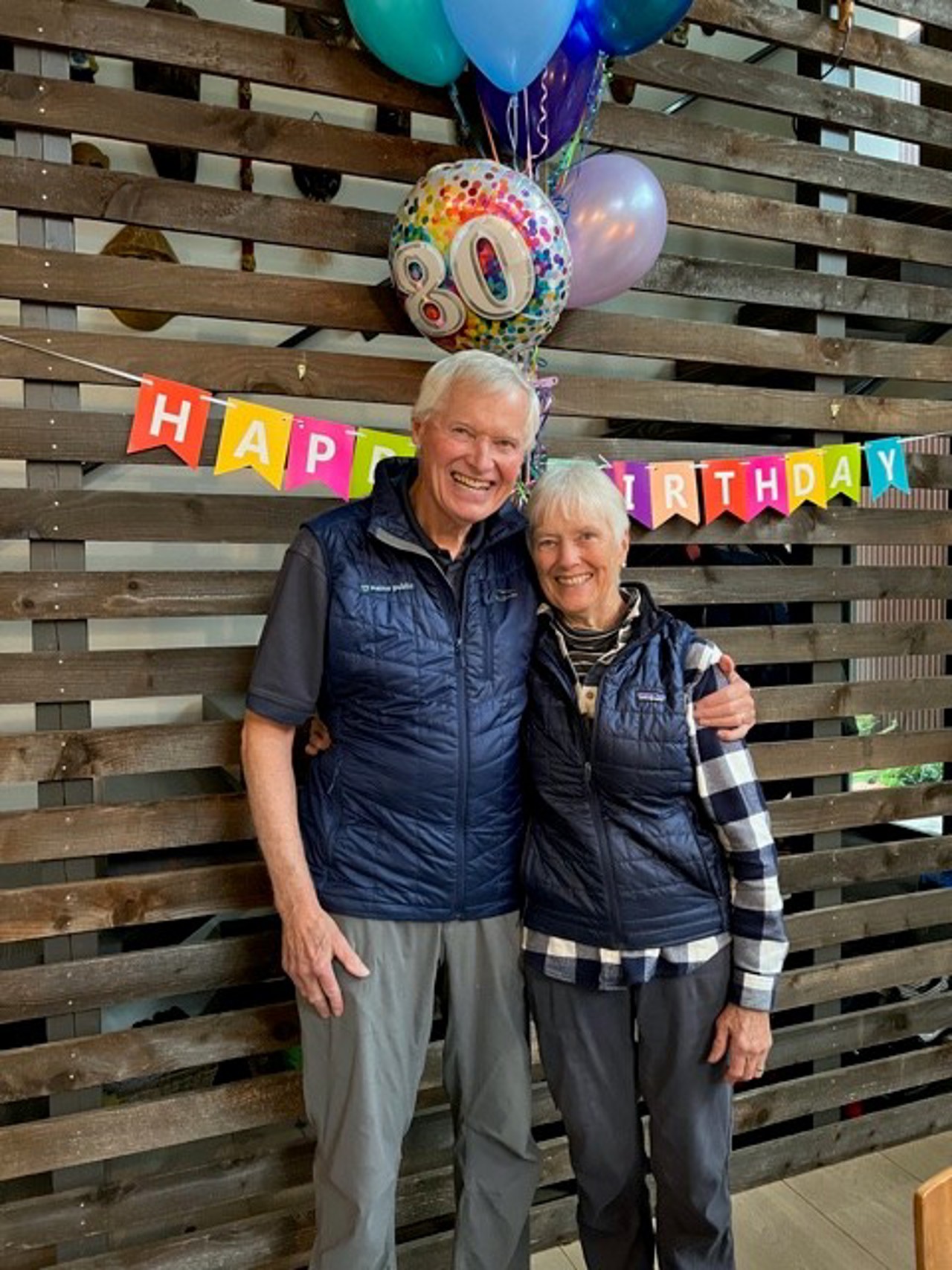
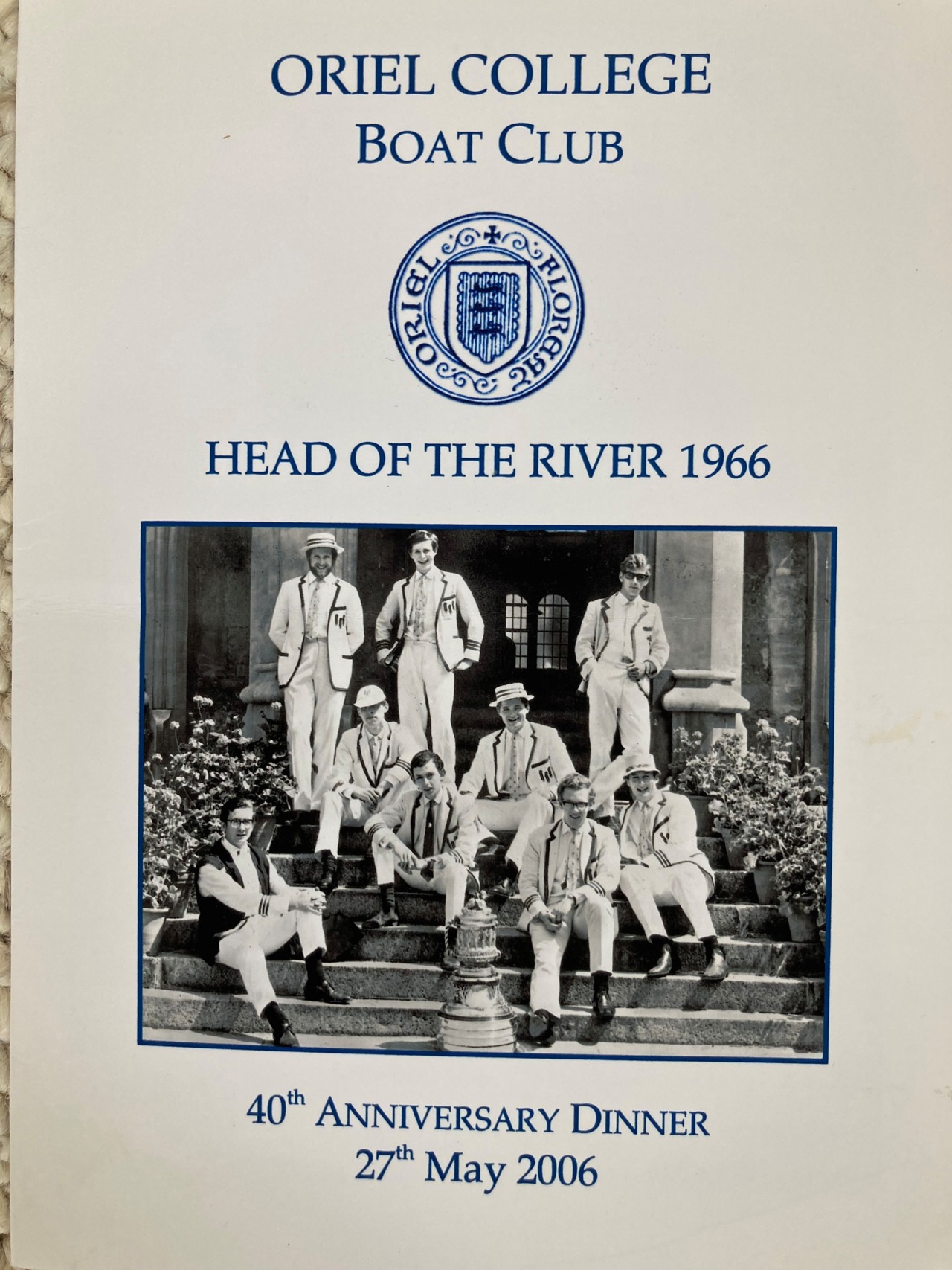
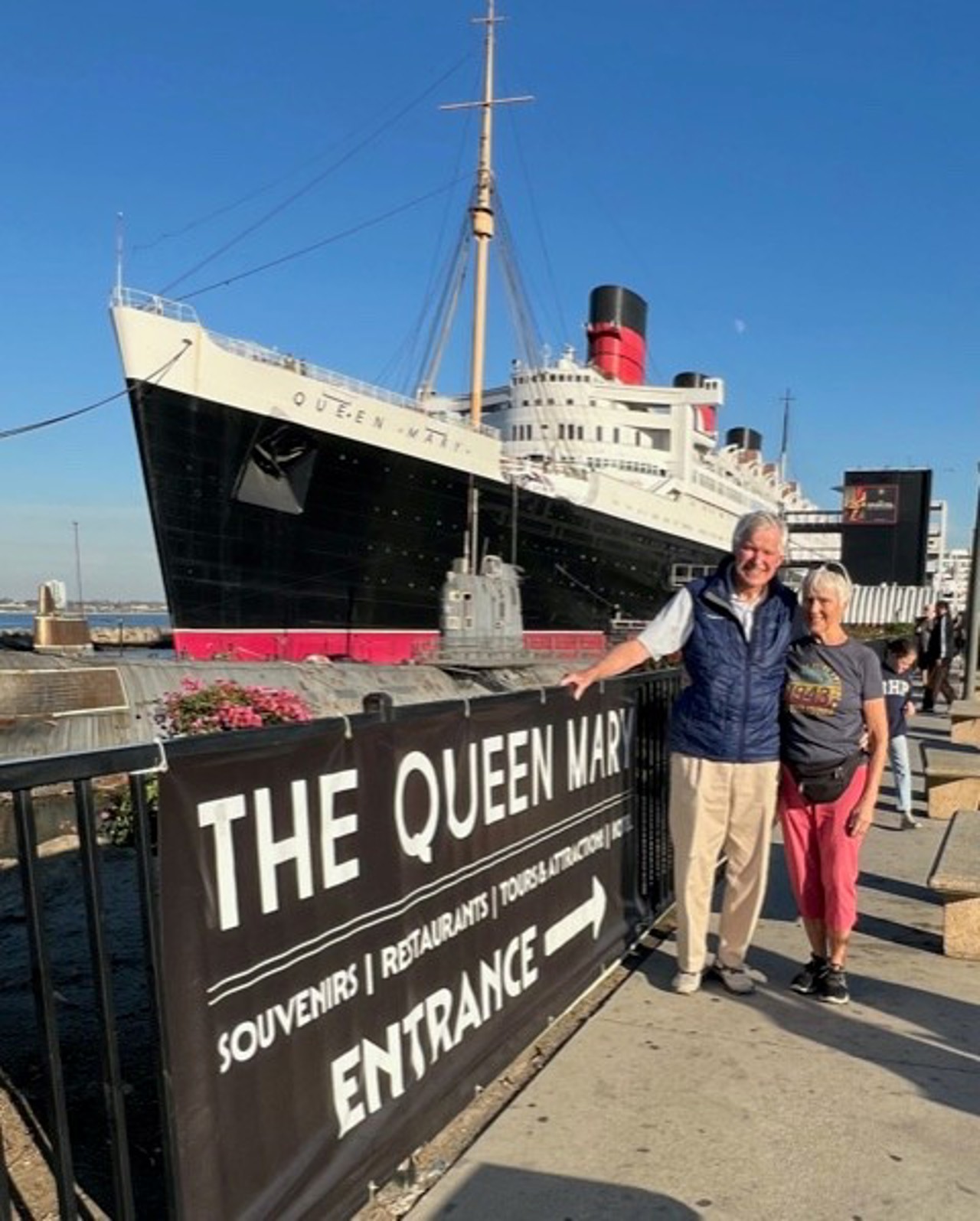
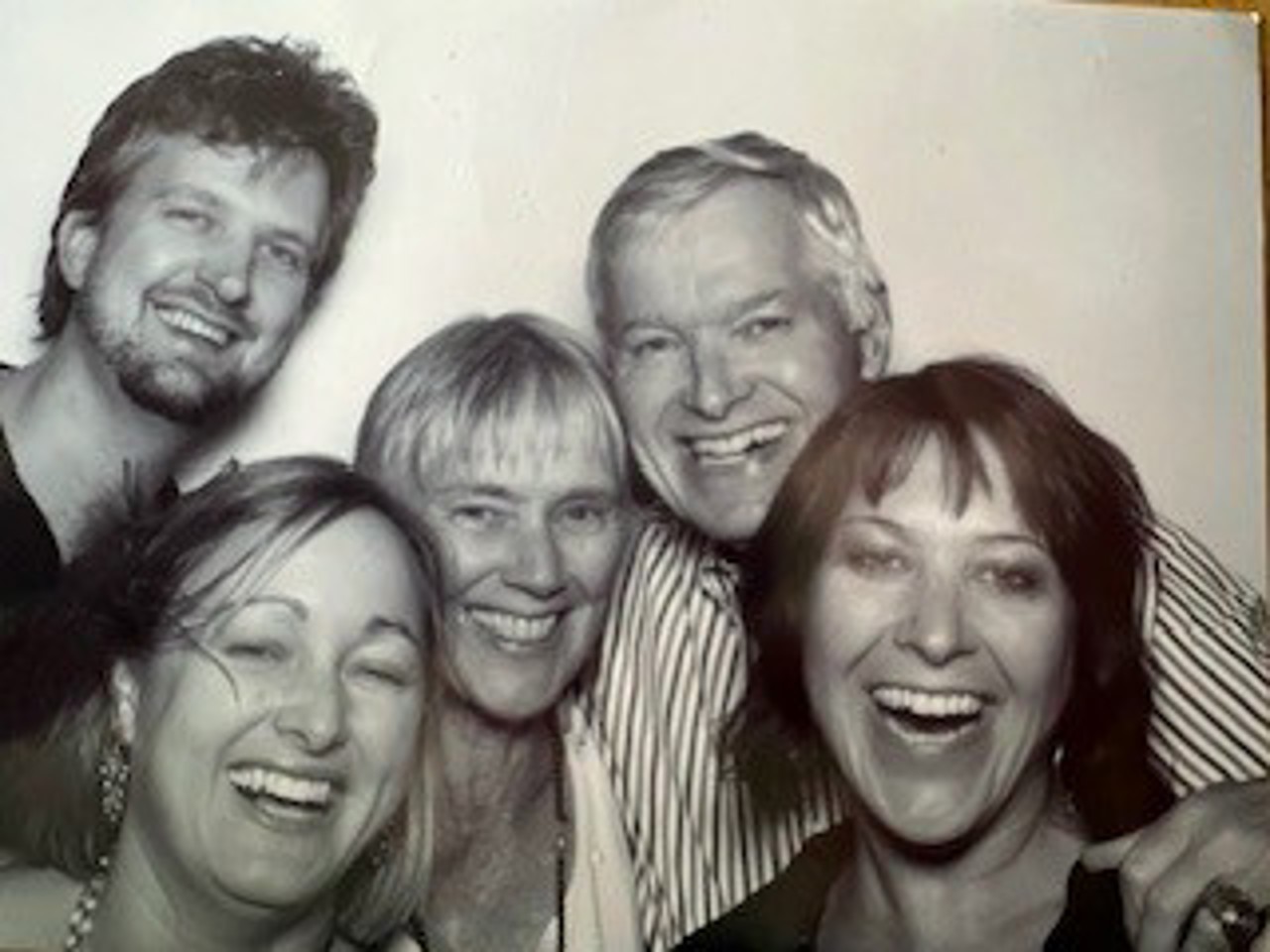
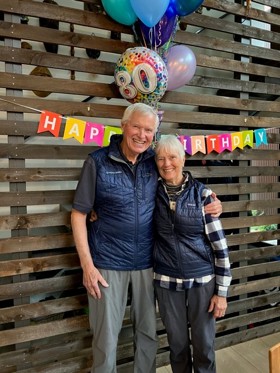
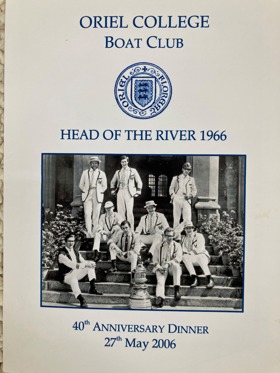
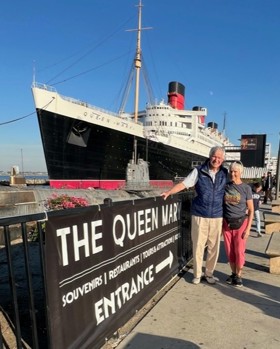
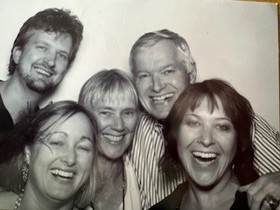
‘Everything seemed to be clicking’
My family moved to Cape Elizabeth, Maine, a small suburb of Portland, when I was eleven. It was a relatively small town. The schools were excellent and challenging. I had many friends and was involved in sports and lots of school activities. It was idyllic, really. This was a time post-World War II when everything seemed to be clicking, opportunity was everywhere and people were upbeat. It was just a wonderful time to grow up in a small town on the Maine coast.
I’m one of four kids. My dad had not gone to college. My mom had gone to a junior college. Both were adamant that all of us kids would go to college. I was a bit lazy, but I loved every aspect of school. As I got older, I particularly enjoyed history and international relations. I had several good teachers, but my French teacher, Myrtle Sherman stands out as the teacher who inspired me most. She was ferocious and demanding. I struggled early on in her class, but one day, she took me aside and said, ‘Ron, you could really make something of yourself, but you need to step up, work harder, find out more about the world.’ She encouraged me to apply to the American Field Service student exchange program, and I ended up spending a summer in England. It was an incredible experience. New worlds opened for this kid from a small town in Maine whose previous longest trip had been to drive to Boston to see a Red Sox game. I hitchhiked widely in England and on the Continent with the son of the English family I lived with. I remember one ride with a fellow who turned out to be an Oxford student. He was asked about my plans for the future and added, ‘You know, you ought to think about Oxford.’ At the time I couldn’t imagine such an outcome.
On applying for the Rhodes Scholarship
Spurred on by teachers like Mrs Sherman I did well in school. I applied to were Yale and the Naval Academy. I was accepted at both, One Saturday morning in the Spring of my senior year, our home phone rang and a voice said, ‘This is Senator Margaret Chase Smith ( Maine’s distinguished senior Senator and something of a legend ). I’m calling because I would like to nominate you to the United States Naval Academy.’ Not sure I wanted to go to the Naval Academy asked if I could call her back. She seemed a bit non plussed but agreed. Then I called Yale. They said they were going to give me a full scholarship, compounding my good fortune and immediate dilemma. I had a difficult few hours weighing the pros and cons of both opportunities, but this young Mainer couldn’t imagine turning down Margaret Chase Smith. In the event, the Naval Academy was just the place for me. I was a person without much discipline, and this was a very disciplined place. Oddly enough I thrived, finding that I had a knack for figuring things out and a way of working with others that was effective.
At the end of my second year, in July 1963, I was fortunate enough to be at the Naval Academy when President Kennedy made an impromptu visit. It was inspirational. He and his wife Jackie were a striking couple. We were dazzled. The Brigade was standing at attention when the President said, ‘Gentleman, stand at ease.’ Given the enormity of the event none of us could imagine standing at ease, nobody moved a muscle, and, though visibly surprised that we didn’t respond, he recovered quickly, telling to the Superintendent, ‘Well, Admiral, I guess they haven’t learned that command yet.’ Tragically three months later, I was one of the 60 midshipmen selected to march in his funeral. It’s something I’ll never forget.
It was my naval history professor who suggested I should apply for the Rhodes Scholarship. It looked like a wonderful opportunity, but at that time, few Naval Academy candidates had been selected. I thought it was unlikely I’d have a good shot. I’d been prepping myself for questions about the Navy, and then, at my Rhodes interview, the Selection Committee Chair asked how I would improve the economy of Maine. I was flummoxed and bumbled through an answer, thinking, ‘Well, I blew that one.’ So, when they announced my name as one of four selectees, I was surprised and delighted, of course, hardly imaging such good fortune
‘What surprised me was how incredibly social Oxford was’
We were the last class of Rhodes Scholars to sail to England on the Queen Mary. It was a wonderful bonding experience, and I think it’s one of the reasons that our class has had such a strong sense of companionship over all these years. England in the mid-Sixties was still trying to shed its post-World War II doldrums. The British economy was going through some difficult times, but being at Oxford University was extraordinary. What surprised me at first was how incredibly social it was. I probably overreacted to that, because at the Naval Academy, every moment of one’s time is proscribed in some way, but here I was, with my own room and people often inviting me to tea. As a result, I did not go to many lectures, and that’s the one thing I regret about my Oxford experience. I missed seeing legendary professors like Isiah Berlin. In my next life I will not make that mistake.
My wife, Sally, and I got married in the summer after my first year at Oxford. We’d met when she was in fifth grade and I was in sixth grade. The first thing I noticed was what a terrific athlete she was, first playing ice hockey hockey, then baseball. Whatever we boys could do, she could do better. I found her intimidating. It wasn’t until high school that I realized she was pretty special in all ways. At Oxford, we lived in an idyllic cottage on Boars Hill. It was lovely.
I was also lucky to have good mentors. The Warden, E.T. Williams, had a soft spot for military Rhodes Scholars, and there was also my politics tutor at Oriel, Christopher Seton-Watson, who helped me think through all of the aspects of the Cold War, something that greatly interested me.
Certainly a highlight of my Oxford years was rowing for my college, Oriel. In 1966 we were “Head of the River”, an amazing feat that Oriel had not accomplished in some thirty years. Rowing over as Head Crew on the final Saturday of the Boat Races is a thrill I will never forget. We paraded our boat through the town and were treated like kings at a formal dinner in Oriel’s Dining Hall. I forged bonds with the members of that crew that we retain almost 60 years later.
When I left Oxford, I knew I had seven or eight years of obligated service in the Navy, Sally and I moved a lot during those years. I served on destroyers in the Atlantic out of Charleston, South Carolina and the Pacific, out of San Diego, California. I had one tour of duty in the Tonkin Gulf, Vietnam. Subsequently, I was posted to the Pentagon, where I joined the staff of Melvin Laird, who was the Secretary of Defense for President Richard Nixon. I had the opportunity to assist on Vietnamization policy ( which, unfortunately, turned out to be a way to get our troops out before the collapse of the government). I also completed a review of all the key decisions Secretary Laird had been involved in during a tumultuous time in U.S. foreign policy. This was fascinating, owing mainly to the rivalry between Laird and Henry Kissinger that dominated this period. I believe Laird wanted this documentation to protect his legacy by writing his account of these years- which he never did.
‘Doing real work to make things better’
After the Navy, I decided to go to McKinsey, a global consulting firm, because I thought it would provide a base for a career in business. McKinsey turned out to be an exceptional experience. It was challenging and yet collegial. The Firm was expanding into Europe and was driven by “the best and the brightest”. It was an exciting time of growth and opportunity both personally and professionally. McKinsey was known for deep analysis and sound advice. I learned much about the importance of being direct and honest, even when such advice might not be welcome. When I later decided to set up my own strategic consulting firm, I tried to bring insight and advice in a way that built trust and strong relationships. I think I was able to build trust, the kind of trust that leads to an openness in relationship that is key to real problem solving,
When I left McKinsey and moved back to the coast of Maine on the mid eighties I was determined to “give back” in some way. I had always been interested in education so I set out to do something to help improve education in Maine. I successfully ran for the School Board in Cumberland. I also became active in forming a statewide education coalition of business and educational leaders in Maine to focus on strengthening Maine’s K-12 performance. This Coalition has become a strong force for educational improvement in Maine over the past almost 40 years. It was instrumental in Maine becoming the first state to develop and enshrine in law statewide learning standards. As a result, our Coalition was named national business-education coalition of the year in 2003 by the Conference Board. Education reform is a long march. I am proud to say the our Coalition, Educate Maine, is still engaged and making a difference.
‘Go deep’
What’s fulfilling for me is to go deep in my work and my passions, My advice to my children is simple: be kind, and do something to make the world a better place. Take some risks. Don’t settle for ordinary. Be guided by values that are just and meaningful.
Remember that life is a long path. The one thing about the Rhodes Scholarship that is problematic is that one may feel being selected for the Scholarship is the high, and that from then on, everything should be magical. Life doesn’t work that way. Believe in your values and persevere.
Take inspiration where you can. The Rhodes Reunion in 2003 in Capetown brought me the chance to encounter the most inspiring person I’ve ever met – Nelson Mandela. I feel so fortunate to have been able to be part of the evening during which he shared his life experience with us in the most humble and most inspiring of ways. I will always cherish that. I will also always remember the final paragraph of his autobiography: “Long Walk To Freedom”
“I have walked that long road to freedom. I have tried not to falter; I have made missteps along the way. But I have discovered the secret that after climbing a great hill, one only finds that there are many more hills to climb. I have taken a moment here to rest, to steal a view of the glorious vista that surrounds me, to look back on the distance I have come. But I can rest only for a moment. For with freedom come responsibilities. And I dare not linger, for my long walk is not yet ended.”
